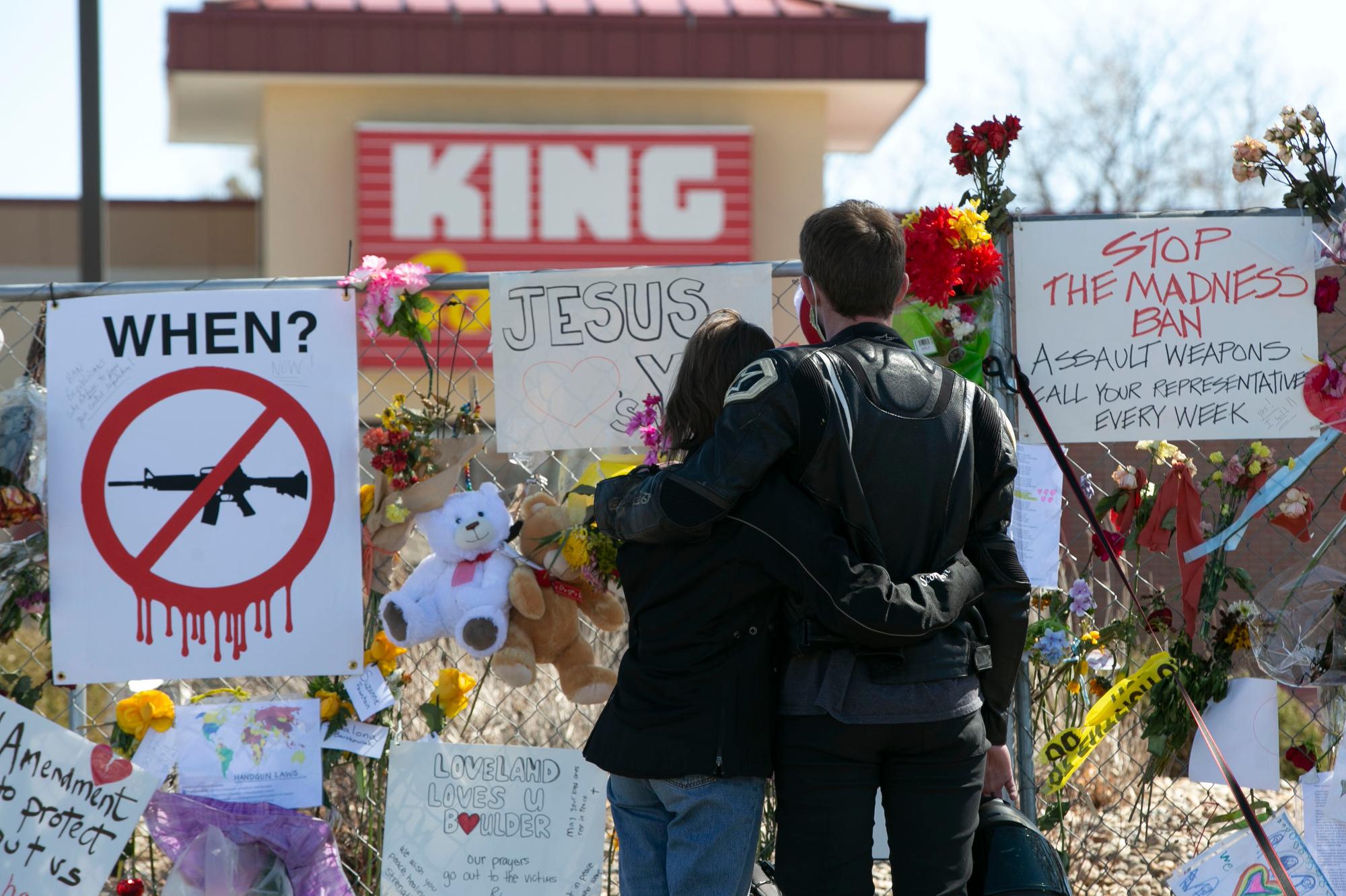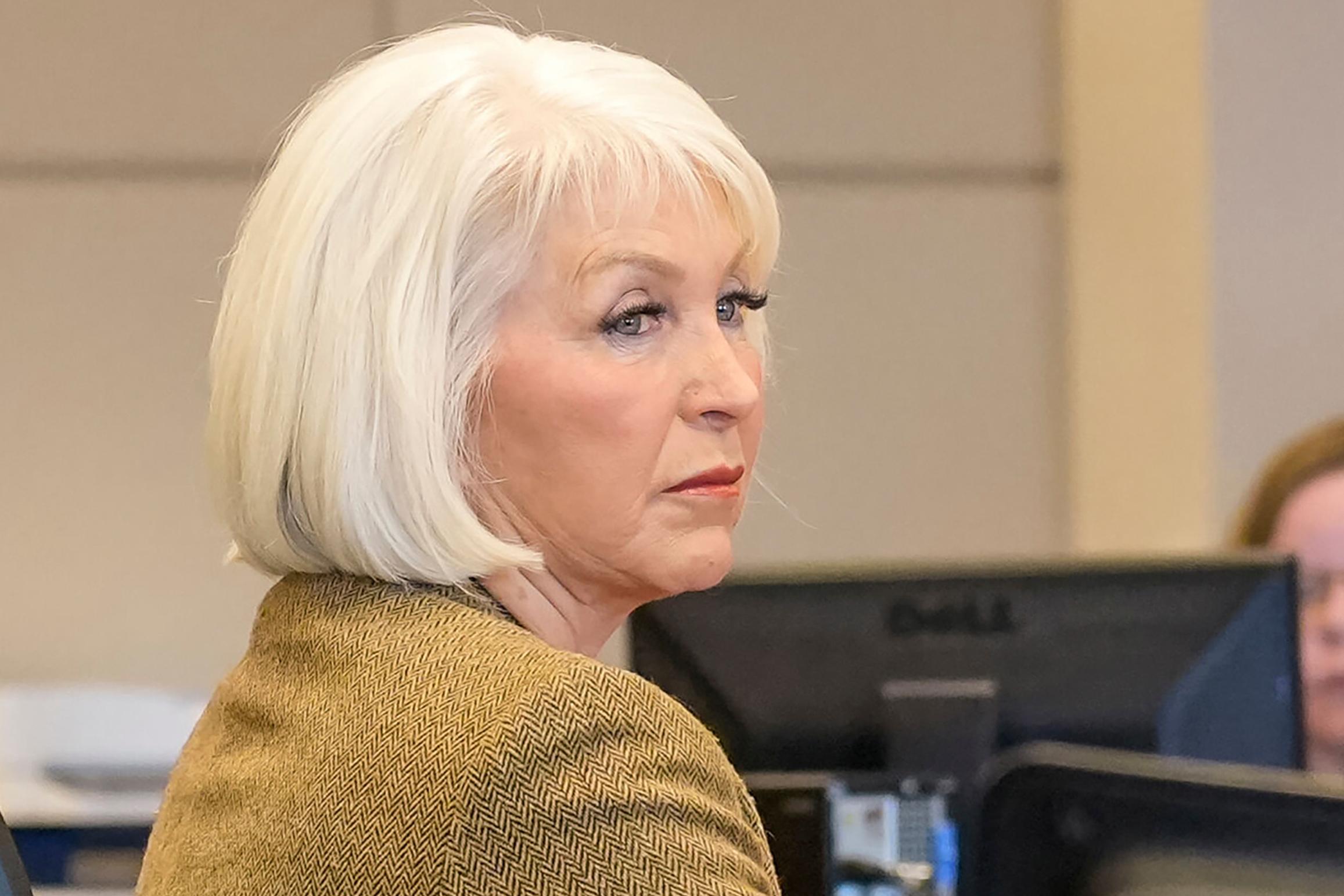
There’s not much to reasonably doubt around the actual facts of the Boulder King Soopers mass murder on March 22, 2021.
Prosecutors say that Ahmad Al Aliwi Alissa drove to the south Boulder grocery store where he then shot and killed 10 people in the parking lot and inside the store. He was found in the store bloodied after a firefight with police with an assault rifle next to him, a semiautomatic handgun and a green tactical vest.
That means the criminal proceedings starting today with jury selection aren’t so much about whether he did it, but about whether he was legally sane when he did it.
And from there, a Boulder jury will decide whether the 25-year-old is not guilty by reason of insanity or just plain guilty — a decision that could alter the length of time that he is in custody and change the course of his young life.
Three years of court hearings, competency challenges and delays
Doctors have generally agreed in three years of court hearings that Alissa suffers from schizophrenia and that his condition worsened while he sat in the Boulder County Jail in the days and weeks after the shootings.
For years, he was deemed incompetent to proceed to trial, which simply means he was unable to assist in his own defense. Eventually, a judge ordered that he be forcibly given antipsychotic medication at the state’s Colorado Mental Health Institute in Pueblo. Alissa was found competent to proceed last August and has remained at the hospital, forced to take his medicine.
The bar for a prosecutor to prove a person was sane the day they committed an alleged crime is a steep one in Colorado — among the highest in the country, said former Arapahoe County District Attorney George Brauchler.
Brauchler, who is running for district attorney in a new judicial district in Douglas County, is one the few prosecutors in the country who has tried a mass shooting case with a plea of not guilty by reason of insanity — a story akin to what happened at the King Soopers store in 2021.
In 2015, Brauchler prosecuted James Holmes, who had pleaded not guilty by reason of insanity after shooting and killing 12 people and injuring 70 in an Aurora movie theater. A jury rejected that plea, and Holmes was eventually convicted and sent to prison out of state to serve several life sentences.
A not guilty by insanity plea legally complex
Colorado’s law on criminal insanity changed in 1995. It’s a complex read, but overall, people qualify for a not guilty by reason of insanity verdict if they are found to be “so diseased or defective in mind” that at the time of the crime, they were incapable of distinguishing right from wrong.
Or, they could be found not guilty by reason of insanity if they were incapable of forming a “culpable mental state” that is essential to the crime charged.
“If somebody comes along and says, ‘I am insane and therefore I should not be held accountable for my criminal conduct,’ then instantaneously, it creates a burden on the prosecution to disprove that defense beyond a reasonable doubt,” Brauchler said. “We are as favorable to anyone invoking a mental health defense than any state in America.”
What Brauchler means is that Boulder District Attorney Michael Dougherty, and his team, have to prove two things to a jury beyond a reasonable doubt: that Alissa committed the crime and that he was not so exceedingly diseased in the mind on that snowy day in Boulder that he didn’t know what he was doing was wrong.
Dougherty and defense attorneys representing Alissa could not comment or discuss the case.
Insanity cases exceedingly rare in justice system
Defense attorneys say pleading not guilty by reason of insanity is exceedingly rare in the criminal justice system — fewer than 1 percent of cases nationally, said Kristen Nelson, a defense attorney who worked on the Aurora movie theater trial and now runs the Spero Justice Center in Denver, a nonprofit advocacy organization that works to curb what they call excessive sentences.
“The reason we have an insanity defense is because as a society, we recognize that people who suffer from severe mental health disorders should not be held criminally responsible for actions in the same way that someone acting with a clear mind should be,” Nelson said. “It’s a very difficult defense to prove because it’s a very specific definition.”
In the Alissa trial, defense attorneys will likely work to demystify schizophrenia and psychosis to the jury and flesh out a narrative that the defendant wasn’t “born bad” and how mental illness can overtake a person’s thoughts and actions, Nelson said.
The other thing defense attorneys could contend with in the courtroom is the defendant himself.
Nelson said sometimes jurors will scrutinize a charged person’s behavior in the courtroom, does he seem remorseful? Is he having a hard time looking at crime scene photos? Is he emotional?
Nelson said the symptoms of many mental illnesses — particularly among people who are medicated — include having a flat affect which can be misperceived as indifference.
“That can be really challenging. There are often really good reasons why a person may not be testifying in their own defense,” she said. “Jurors will draw conclusions but in fact their lack of emotional expression may be a direct result of their mental illness.”
Mental condition on the day of the crime
On the other side, Brauchler expects Dougherty to spend as much time, if not more, on the mental condition of the alleged shooter before the crime as he does afterward when he was sitting in the Boulder County Jail. Did he follow traffic laws while heading to King Soopers, for example. Did he have conversations with anyone that day in which he seemed right in his mind?
“The history of that person leading up to that day is more important in my opinion than the conduct of after they’ve been incarcerated,” Brauchler said. “To the extent the prosecution could bring up people who say, man I saw him that morning and he seemed no different than the last 10 years I’ve known him. All of that works to the benefit of proving that he was sane.”
Defense attorneys, though, can be expected to dig into the defendant’s background, family history, patterns of behavior. They’ll likely bring up expert witnesses who have evaluated the defendant and can speak to how undiagnosed and unmedicated schizophrenia affects the brain and a person’s behavior.
They will also likely lean into his actions directly after law enforcement detained him inside the store: Alissa stripped down to his underwear, despite the inclement weather, and immediately asked to go home and call his mother.
The other thing defense attorneys will do is try to gain rapport with the jurors and humanize Alissa as a person struggling with an evil inside of him, reasoning that they only need one person on the jury panel to sympathize with his struggles and agree that he was mentally deficient the day of the shootings to not get a conviction.
A verdict of not guilty by reason of insanity is not a conviction
Ultimately, like any criminal trial, whatever the jury decides will affect Alissa’s life dramatically.
If they deliver a not guilty by reason of insanity verdict, Alissa won’t be a felon or convicted of any crime.
He will be sentenced to “a day to life” at a hospital and will remain, as he is now, a patient, said Leora Joseph, director of the state Office of Civil & Forensic Mental Health.
It also means Alissa could eventually be free to go home.
Every year, the not guilty by reason of insanity patients receive a “release exam” from a team of medical professionals who will evaluate how the patients are doing. If they decide the person is safely releasable, it goes through a series of reviews and committees and eventually lands on the desk of the hospital CEO. If the CEO agrees, then it winds its way back to court where prosecutors and defense attorneys and victims make cases in front of a judge. The judge would ultimately decide whether the person is free to go, Joseph said.
And even then, Joseph noted, the judge could impose a series of restrictions and supports.
“There’s no chance that a year goes by and people say, oh, it’s been a year, let’s go, let him go,” she said. “That is not going to happen. These are decisions made by judges. The hospital has teams of people looking at these things.”
But that still is a dramatic departure from a life in prison sentence without the possibility of parole, Brauchler said.
“If he doesn’t get found insane by a jury, there are no number of years that pass where he will be released,” he said. “The only person who could change that would be the courts or the governor down the road. Otherwise, the guy is going to die in prison. That’s going to happen.”
There are currently 118 patients at the Pueblo hospital who are done with criminal trial proceedings and were deemed not guilty by reason of insanity.
If those individuals faced violent felony charges, they remain in a maximum-security building with their own climate-controlled bedrooms. Depending on their needs, some require round-the-clock care and supervision and isolation, but others eat together, participate in group activities, go to the library and do art therapy, Joseph said.
This day in those conditions is, to say the least, different from an average one as a convicted felon in a state prison.
“The Department of Corrections calls people, defendants, inmates. Our team calls them patients,” Joseph said. “Think about the significance of calling one person a defendant and the other person a patient, right? A patient. You're thinking ‘hope and healing,’ right? And a defendant is a prisoner. It's two such different systems.”
Third mass shooting trial in 30 years with insanity plea on the table
This is the third mass shooting trial in 30 years in Colorado where the accused gunman pleaded not guilty by reason of insanity — the first two were unsuccessful.
Nathan Dunlap entered the plea for the Chuck E. Cheese shooting in Aurora in 1994 when four people were shot and killed. He was found to have faked that diagnosis while hospitalized in Pueblo and convicted of the murders.
When James Holmes killed 12 people and injured 70 in 2012 in an Aurora movie theater, he too pleaded not guilty by reason of insanity. Brauchler ultimately proved to a jury that he was sane on the day of the killings and Holmes was sent to prison for multiple consecutive life sentences.
“Jurors may be able to sense that there isn’t authenticity. They get debunked by common sense and other observations of him acting appropriately. Is he able to write in English? Does he make complete thoughts? All of these things can be highlighted in a case like this,” Brauchler said. “You can fake crazy for a little bit, but you can’t fake crazy long term.”
- Boulder law enforcement: Alleged King Soopers shooter appeared ‘eerily’ calm moments after shooting
- King Soopers shooting trial: Judge defers on moving the venue outside Boulder County, denies request to sequester jury
- Man accused of killing 10 at King Soopers was ‘sane’ on the day of the 2021 Boulder shooting, evaluators say
- Trial set for man accused of killing 10 at King Soopers
- Accused Boulder King Soopers shooter pleads not guilty by reason of insanity









